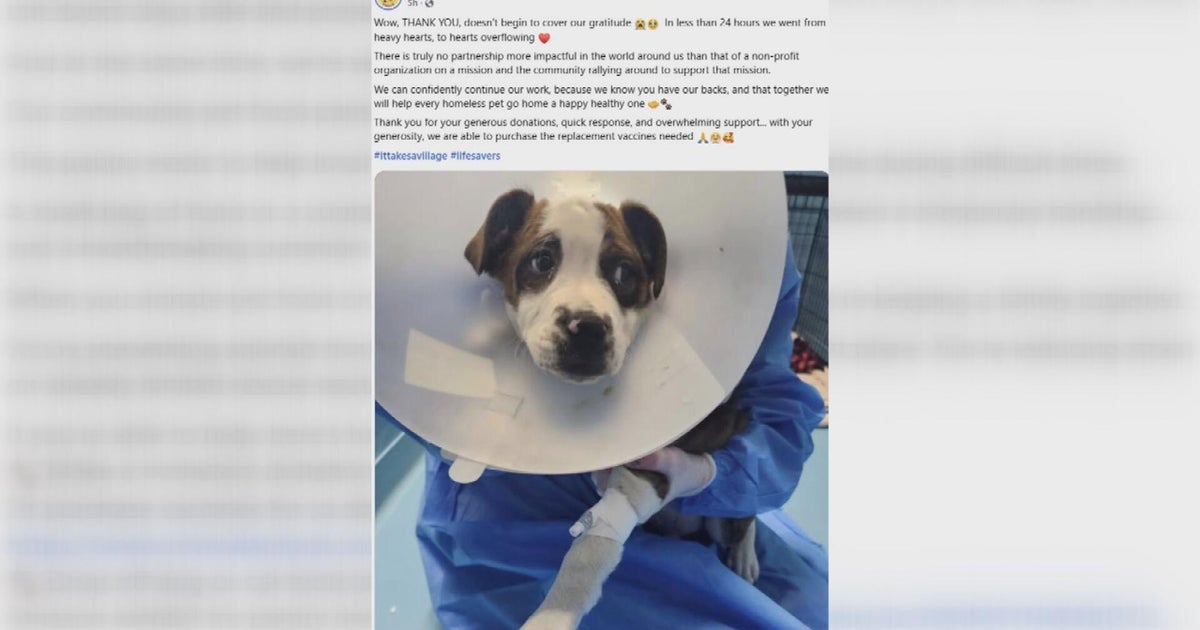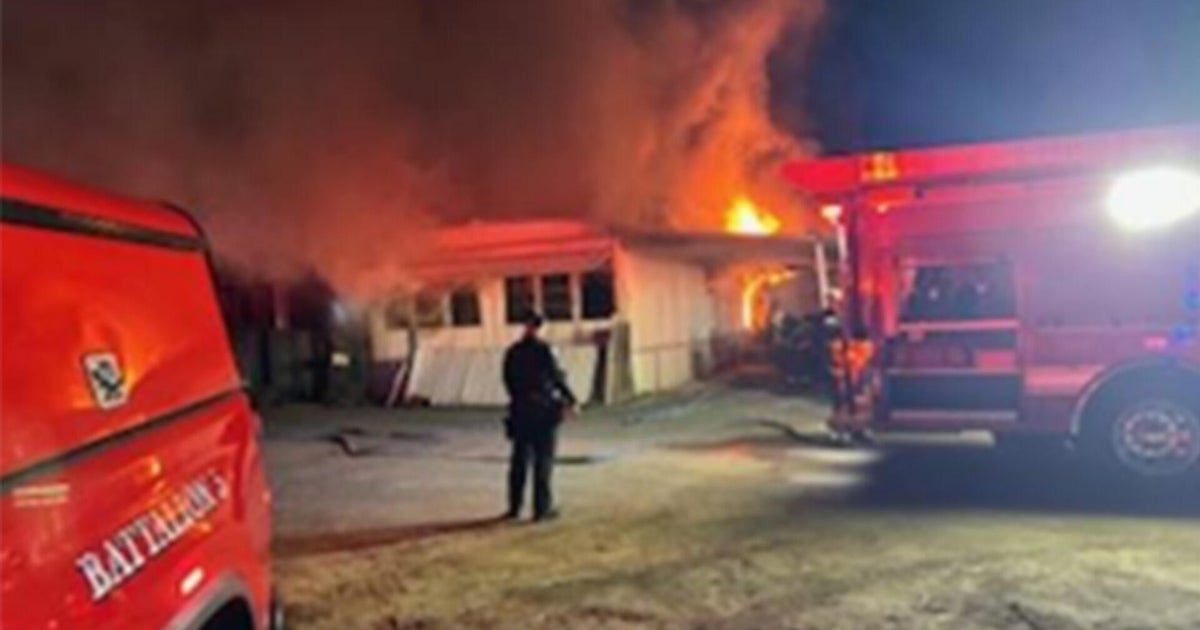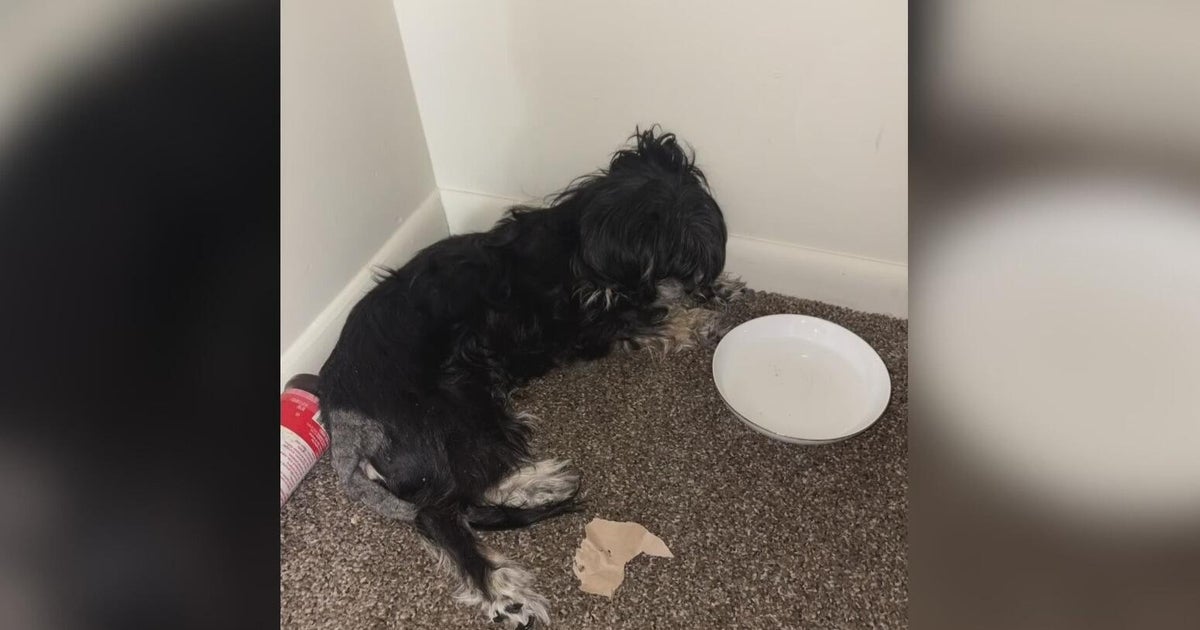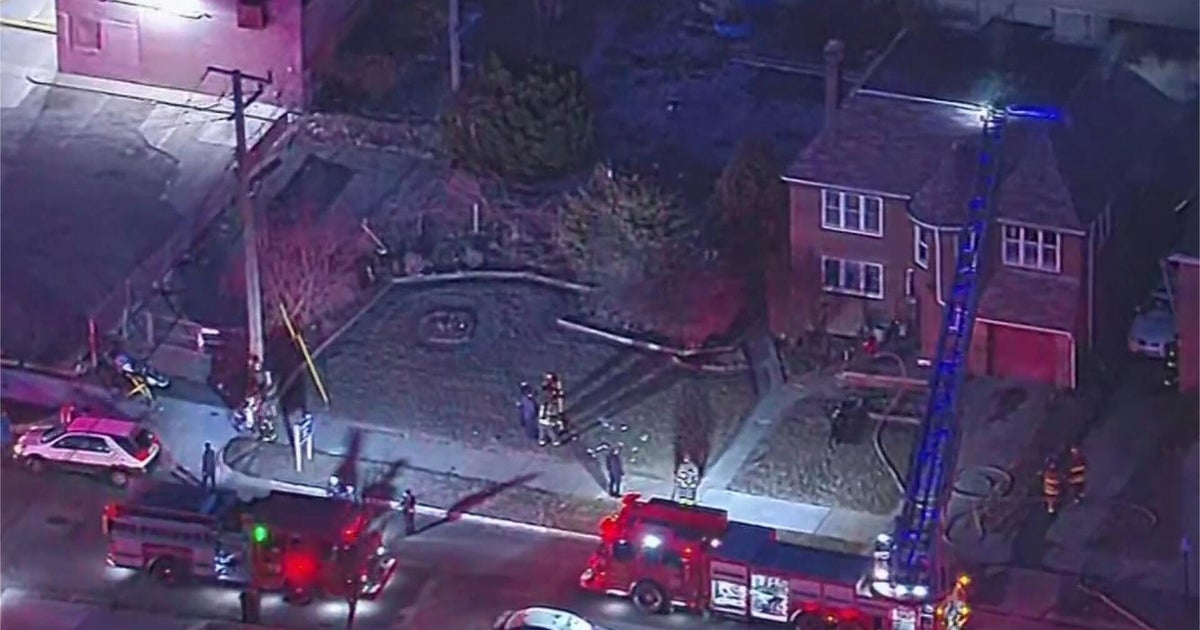Tests On Dog Harnesses Show 100 Percent Failure Rate
MIAMI (CBSMiami) -- A first-of-its-kind crash test for dog harnesses widely used by pet owners showed that none offer adequate protection, with not a single harness passing the test.
The non-profit Center for Pet Safety (CPS) said during its harness tests, crash-test dog dummies turned into projectiles and were even decapitated.
"We tested them to the child safety restraint standard and we experienced a 100-percent failure rate to protect either the consumer or the dog," said CPS founder and CEO Lindsey Wolko. "That is a very real concern for consumers."
The Center for Pet Safety would not disclose which harnesses the nonprofit tested out of fear even fewer people will secure their pets.
Wolko said that, while some manufactures do claim to do their own testing, there is no government standard, which creates unregulated industry that can be dangerous for drivers.
Veterinarian Kim Haddad has seen what can happen to a pet in a car accident. "Broken legs, broken jaws, soft tissue injury, it can be pretty traumatic," said Dr. Haddad.
But while injuries are much worse when drivers let their dogs roam free inside a vehicle, simply using a harness often isn't enough. In some cases, they can be just as deadly.
"Something is better than nothing, but again, it is only going to be as good as the manufacturer, the fit and the user application of the product," said Haddad.
According to the American Automobile Association, 20-percent of dog owners admit to allowing their pets to ride unrestrained inside their vehicle.
While having your dog in your lap as you drive violates distracted driving laws, no state currently requires drivers to buckle up their pets.
Some states have proposed bills that could require harnesses, but CPS worries such laws would create a false sense of security as owners assume if a product is legislated, it meets some kind of safety standard.
CPS is now calling for standardized testing similar to child safety seats and for lawmakers to educate themselves on safety standards before legislating the restraints.
One auto manufacturer, Subaru, is currently partnering with CPS to create a testing standard.







